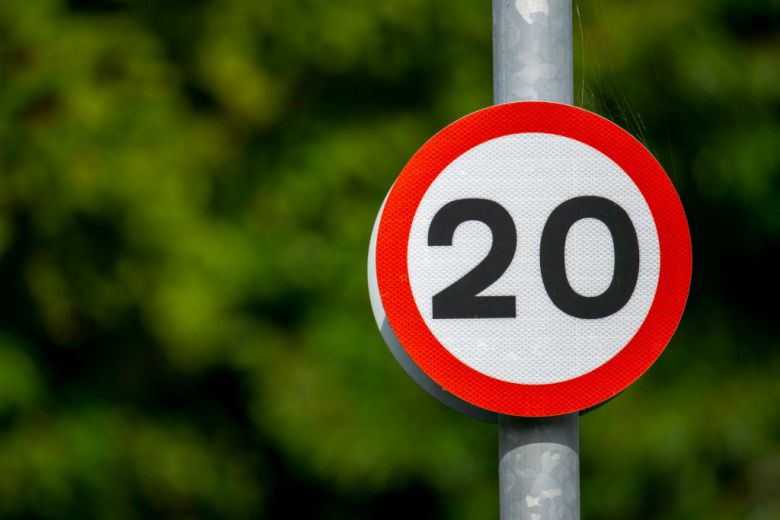Schemes across the UK and Europe to reduce speed limits in the name of safety have become increasingly popular in recent years, with the primary goal of lowering the number of crashes, casualties and speeding seen on the roads.
According to data from The Royal Society for the Prevention of Accidents, at traffic speeds of 30-40mph, the risk of pedestrian death as a result of a collision with a vehicle is 5.5 times more likely than at speeds between 20-30mph.
However, a three-year research project by Queen’s University Belfast claims 20mph speed limits across the city have made little difference to safety, but did reduce the volumes of traffic.
The data was collected over 76 streets in the centre of Belfast prior to the introduction of the 20mph rollout, and then one and three years after they were installed.
That information was then compared with data collected from nearby streets where the 20mph are not in place and similar roads elsewhere in Northern Ireland that had retained their speed limits (30-40 mph).
Analysis of the data revealed that when compared with areas that had retained their previous speed limits, the new 20mph limits led to minimal change in short or long-term outcomes for road traffic collisions, casualties, or speeding.
In total, road traffic collisions fell by 3% and 15%, respectively, over the one and three-year periods after the policy took effect.
Over the same time frame, casualty rates fell by 16% and 22%, respectively. However, researchers said these reductions were not statistically significant.
The data also showed that the average traffic speed fell by only 0.2mph after the first year. This increased slightly after year three to 0.8mph.
Finally, the only significant decrease in the data was the volume of traffic in the new 20mph limit.
The research found that 166 fewer vehicles per week were observed during the morning rush hour following the introduction of the 20mph speed limits.
Following the release of the data, researchers from the Journal of Epidemiology and Community Health, said: “Our findings showed that a city centre 20mph intervention had little impact on long-term outcomes including road traffic collisions, casualties and speed, except for a reduction in traffic volume.
“Future 20mph speed limit interventions should consider the fidelity enforcement, context and scale of implementation.”
The researchers stated that their latest findings mirror independent research conducted in Belfast, which found that the general public saw 'little change in traffic speed following the implementation of the 20mph speed limit'.
RAC road safety spokesman Simon Williams said: “The findings of this study are surprising as they appear to suggest that drivers on 20mph roads in Belfast hardly slowed down at all, despite the lower speed limit, which is at odds with other reports.
“It seems there is a serious problem with compliance as we would expect that even without enforcement average speeds would drop.
“Consequently, the study may demonstrate a need for councils to find other ways to get drivers to slow down, whether that’s through enforcement or modifying road design with traffic islands, well-designed speed humps or chicanes.
“It’s also important that 20mph limits are used in places where they stand to make the biggest positive impact, such as in built-up areas and in locations where there are large volumes of motorised traffic, cyclists and pedestrians – but clearly that depends on a meaningful drop in overall vehicle speeds.
“Equally, our research shows drivers are less likely to comply with a lower limit if they don’t believe it’s appropriate for the type of road.”
Should the UK be introducing more 20mph speed limits? What are your experiences of dealing with them on a daily basis? Leave your comments below.

SALE – up to 40% off*
Roadside & Recovery from £5.29 a month*
• Cheaper than AA Price Promise or we’ll beat by 20%^
• We get to most breakdowns in 60 mins or less
• Our patrols fix 4/5 breakdowns on the spot











